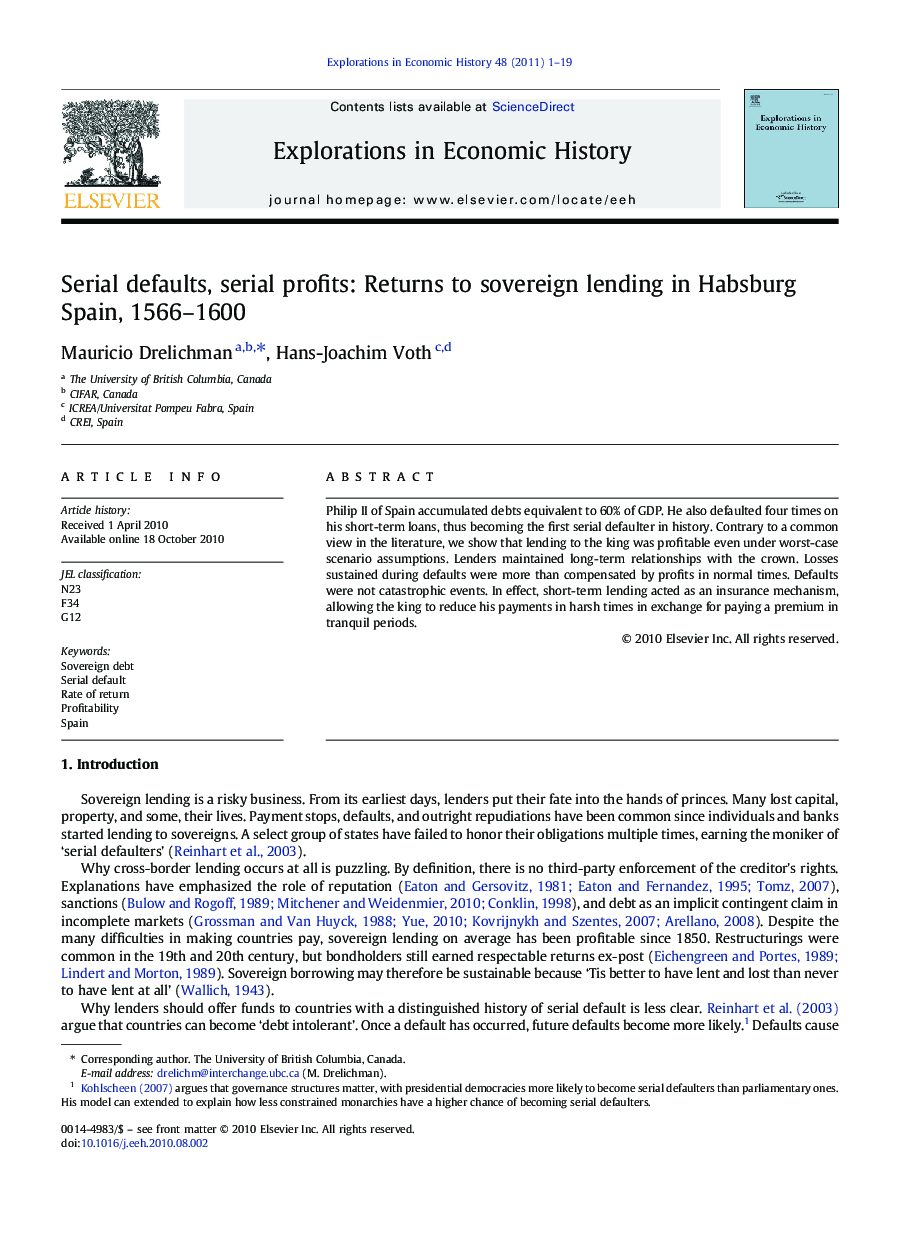| Article ID | Journal | Published Year | Pages | File Type |
|---|---|---|---|---|
| 5068893 | Explorations in Economic History | 2011 | 19 Pages |
Abstract
Philip II of Spain accumulated debts equivalent to 60% of GDP. He also defaulted four times on his short-term loans, thus becoming the first serial defaulter in history. Contrary to a common view in the literature, we show that lending to the king was profitable even under worst-case scenario assumptions. Lenders maintained long-term relationships with the crown. Losses sustained during defaults were more than compensated by profits in normal times. Defaults were not catastrophic events. In effect, short-term lending acted as an insurance mechanism, allowing the king to reduce his payments in harsh times in exchange for paying a premium in tranquil periods.
Related Topics
Social Sciences and Humanities
Arts and Humanities
History
Authors
Mauricio Drelichman, Hans-Joachim Voth,
